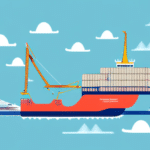The Economy on Shaky Ground: How to Prepare for an Uncertain Future
The current state of the economy is a focal point for both businesses and individuals, especially in light of recent global events. Navigating economic downturns can be challenging, but proactive measures can help mitigate risks and protect your financial well-being. This article provides an in-depth analysis of the economic landscape, its implications for your finances, and strategies to prepare for potential economic uncertainties.
Understanding the Current Economic Landscape and Its Impact
As of 2024, the global economy continues to grapple with a range of challenges, including geopolitical tensions, fluctuating commodity prices, and residual effects of the COVID-19 pandemic. According to the International Monetary Fund's World Economic Outlook, global GDP growth has shown signs of slowing, indicating potential economic headwinds.
For businesses, these conditions translate to increased uncertainty, delayed investments, and cautious consumer spending. Individuals may face job insecurity, reduced income stability, and volatile investment returns. However, it's essential to recognize that economic cycles are natural, and with the right strategies, you can navigate through these turbulent times.
The Rise of Remote Work
The pandemic accelerated the shift towards remote work, a trend that shows no signs of reversing. While remote work offers flexibility and improved work-life balance, it also underscores the digital divide. Access to reliable internet and advanced technology remains a significant barrier for many, potentially widening socioeconomic disparities.
Shifting Consumer Behavior
Consumer preferences have increasingly moved towards online shopping, a trend supported by data from the Statista E-commerce Report. Traditional brick-and-mortar stores are adapting by enhancing their digital presence and focusing on supply chain resilience to address ongoing disruptions in manufacturing and logistics.
Key Economic Indicators to Monitor
Staying informed about critical economic indicators can help you make informed financial decisions. Here are some essential metrics to watch:
- Unemployment Rate: A lower unemployment rate generally indicates a strong economy but may also signal potential inflationary pressures.
- Stock Market Performance: While a rising stock market can boost investor confidence, it's important to consider the broader economic context.
- Gross Domestic Product (GDP) Growth: GDP growth rates provide a snapshot of economic health, with declining rates potentially indicating a recession.
- Inflation Rates: High inflation can erode purchasing power, while low inflation may reflect sluggish economic activity. The Bureau of Labor Statistics offers updated inflation data.
Recession-Proofing Your Personal Finances
Preparing for a recession involves strategic financial planning. Here are actionable steps to safeguard your finances:
- Build an Emergency Fund: Aim to save three to six months' worth of living expenses in a high-yield savings account to cover unexpected costs.
- Reduce High-Interest Debt: Prioritize paying off credit card balances and other high-interest loans to decrease financial strain during downturns.
- Diversify Your Investments: Spread your investments across various asset classes to minimize risk. Consider including bonds, real estate, and index funds in your portfolio.
- Cut Unnecessary Expenses: Review your budget to identify and eliminate non-essential spending, such as luxury items or subscription services.
- Seek Additional Income Streams: Explore side gigs or freelance opportunities to supplement your primary income, providing extra financial cushioning.
Additionally, refinancing existing loans when interest rates are favorable can reduce monthly payments and overall debt burdens. Consulting with a financial advisor can provide personalized strategies tailored to your financial situation.
Diversifying Your Investment Portfolio in Uncertain Times
Market volatility underscores the importance of a diversified investment portfolio. Diversification helps spread risk across different asset classes, reducing the impact of poor performance in any single investment.
Asset Class Diversification
Investing in a mix of stocks, bonds, real estate, and alternative investments can balance potential returns and risks. For instance, while stocks may offer high growth potential, bonds can provide stability during market downturns.
Sector Diversification
Allocating investments across various sectors such as technology, healthcare, finance, and consumer goods can protect against sector-specific downturns. The U.S. Securities and Exchange Commission provides resources on sector performance and trends.
International Investments
Including international markets in your portfolio can mitigate risks associated with domestic economic fluctuations. Global diversification offers exposure to different growth opportunities and reduces reliance on a single economy.
Strategies for Entrepreneurs and Small Business Owners
Economic downturns pose significant challenges for small businesses, but proactive strategies can enhance resilience:
- Maintain Strong Cash Flow: Ensure adequate cash reserves to cover operating expenses during periods of reduced revenue.
- Adapt Business Models: Be flexible in pivoting your business model or exploring new revenue streams to meet changing market demands.
- Optimize Operational Efficiency: Streamline operations by reducing overhead costs, renegotiating contracts, and leveraging technology to improve productivity.
- Enhance Customer Relationships: Foster loyalty through excellent customer service and personalized engagement to sustain repeat business.
- Diversify Your Customer Base: Expand your target market to avoid over-reliance on a small number of clients, reducing vulnerability to sector-specific downturns.
Additionally, staying informed about available government support programs, such as the Small Business Administration initiatives, can provide financial aid and resources to help sustain your business during tough times.
The Role of Government Policies in Economic Stabilization
Governments implement various policies to stabilize the economy during downturns. These measures include stimulus packages, tax relief, and monetary policies aimed at fostering economic growth and maintaining financial stability.
Stimulus Packages
Stimulus packages, such as those provided by the Federal Reserve, inject liquidity into the economy to support businesses and consumers. These measures can help mitigate the immediate impacts of economic crises.
Monetary and Fiscal Policies
Monetary policies, including adjusting interest rates and quantitative easing, influence borrowing costs and investment levels. Fiscal policies, such as government spending and taxation adjustments, directly affect economic activity and resource allocation.
While government interventions are crucial, they are not a panacea. It's important for individuals and businesses to stay informed about policy changes and understand how they can leverage available resources to enhance financial resilience.
Long-Term Strategies for Financial Stability
Building long-term financial stability requires a combination of strategic planning and disciplined financial habits. Consider the following strategies to ensure enduring financial health:
- Invest in Continuous Education: Enhancing your skills and staying updated with industry trends can improve employability and career prospects, regardless of economic conditions.
- Diversify Income Streams: Multiple income sources can provide financial security and reduce dependence on a single revenue stream.
- Secure Appropriate Insurance: Life, disability, and property insurance can protect against unforeseen events that may impact your financial stability.
- Maintain Financial Discipline: Consistently saving, avoiding excessive debt, and living within your means are foundational practices for long-term financial health.
Preparing for the Worst-Case Scenario
While optimism is essential, preparing for severe economic disruptions ensures you are equipped to handle unexpected crises. Here are steps to consider:
- Stockpile Essentials: Maintain a reserve of non-perishable food, water, and essential supplies to mitigate the impact of supply chain disruptions.
- Maintain Liquidity: Keep accessible cash reserves to navigate financial institution instability or unexpected expenses.
- Invest in Alternative Assets: Consider allocating a portion of your portfolio to alternative investments like gold or silver, which can retain value during economic instability.
- Stay Informed: Regularly monitor economic news and trends to make informed decisions and adapt to changing circumstances promptly.
Final Thoughts
Economic uncertainty poses significant challenges, but with informed strategies and proactive planning, individuals and businesses can navigate through turbulent times. By staying informed, diversifying investments, and maintaining financial discipline, you can build resilience and ensure financial stability even in the face of economic adversity.




















